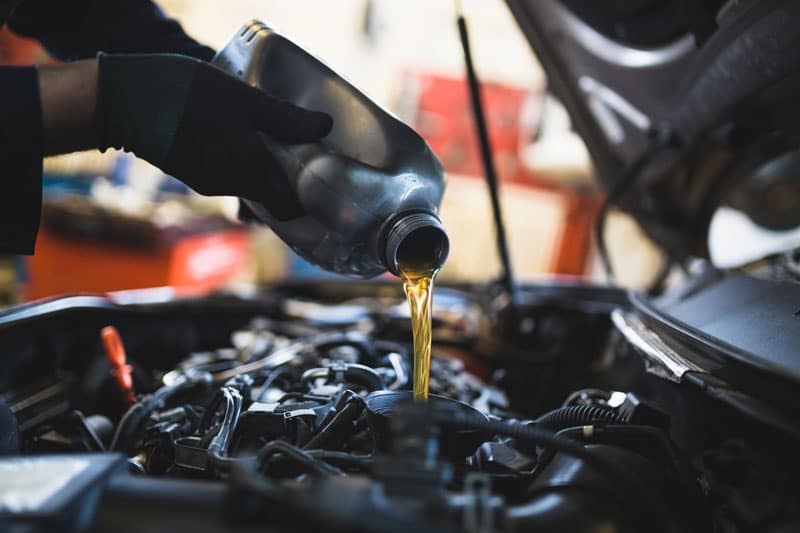![]()
Oil and fuel combine to make the vehicle run more smoothly.
Oil consumption is influenced by the driver’s driving habits and the engine’s design. In the combustion chamber, the oil and fuel both burn simultaneously. When you stop, oil is left in the combustion chamber after being pumped around it while driving. Your car’s engine oil needs to be tended to so it doesn’t run out. When it is near, you should top off the tank with more. The calibre of the engine oil is another essential consideration. Using cheap, low-quality engine oil will cause problems for the engine and reduce its efficiency. You will have to constantly spend hefty maintenance and repair fees for your car if the engine isn’t running well, which will also affect other sections of the vehicle. Like any other machine, the engine must withstand various temperatures and wear and tear; hence lubrication is crucial for an engine to perform correctly. Therefore, investing in high-quality engine oil is preferable to skimping on it. Engine lubrication is the main objective of engine oil. Let’s see some of its benefits:
- Oil is necessary for the efficient operation and lubrication of pistons and valves; thus, the oils are permitted to access these components through the engine.
- The engine oil also extends the lifespan of the engine.
- The engine is cleaned with the engine oil as it helps remove sludge, tiny debris, and dust particles lodged in the machine.
- Engine oil assists the engine cool down and functions effectively during your subsequent drive because it does experience high temperatures while operating owing to friction.
- The car contains many metal components, and over time, rusting and corrosion of the metal become apparent. Because of the compounds it has, engine oil aids in preventing erosion.
- There are gaps in several automotive components, such as the piston and cylinder; with the aid of engine oil, these openings are filled. Engine oil fills up the gaps between the car parts.
- Engine oil lowers the engine’s temperature and prevents corrosion, extending the engine’s lifespan.
Picking the proper lubricant for your car may make or break it, so choose wisely. Poor quality engine oil also increases the fuel consumption of the vehicle. Engine oil and other mechanical jargon are not familiar to the average person. You should seek professional advice from an engine oil expert before selecting the best one. One thing that strongly influences engine oil is viscosity. A lubricant’s viscosity is defined as its flow resistance. The viscosity of most motor oils is determined by how thick they are at absolute zero. When heated up, motor oil thins out and becomes slicker; when cooled down, it thickens. Viscous oil, within reason, typically keeps a better film of lubrication between moving parts and better seals essential engine parts.
An oil may be rated for one viscosity when cold and another when hot with the proper additives to resist excessive heat thinning. The second number will be higher, which is desirable; the more resistant the oil is to thin.
To ensure that the car operates effectively, you should regularly examine and replace it as needed.
